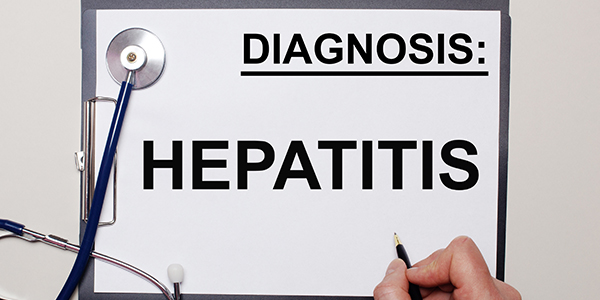Unveiling Hepatitis Diagnosis and Treatment: Your Queries Answered
Embark on an illuminating journey through the world of hepatitis as our experts unveil answers to your questions and offer effective solutions in this informative Q&A session. From understanding the nuances of hepatitis diagnosis to exploring advanced treatment options, our specialized team provides comprehensive insights. Discover the key facts about various hepatitis types, transmission, and strategies for prevention. Empower yourself with the knowledge to make informed decisions and take control of your liver health.

Welcome to a comprehensive exploration of hepatitis diagnosis and treatment. Hepatitis, a group of viral infections that affect the liver, requires timely diagnosis and appropriate management. In this guide, we will delve into the intricacies of hepatitis, from understanding the diagnostic process to uncovering effective treatment strategies. Our specialized team is here to shed light on key aspects, empowering you with knowledge for informed decisions about your liver health.
Understanding Hepatitis:
Hepatitis encompasses a range of viruses, including types A, B, C, D, and E, each with varying modes of transmission and impact on the liver. While hepatitis A and E are typically acute and spread through contaminated food and water, hepatitis B, C, and D often lead to chronic conditions and can be transmitted through blood, sexual contact, or from mother to child during childbirth.
Diagnostic Insights:
Accurate diagnosis is crucial for effective management. Medical professionals employ blood tests to detect viral markers, assess liver function, and determine the specific hepatitis type. Advanced imaging techniques like ultrasound, CT scans, and liver biopsies may also be utilized for a comprehensive evaluation.
Tailored Treatment Approaches:
Treatment plans are personalized based on factors such as hepatitis type, liver damage, and overall health. Hepatitis A and E often resolve on their own, while chronic hepatitis B and C may require antiviral medications to suppress viral replication. Hepatitis D, often occurring in conjunction with hepatitis B, may necessitate specialized therapies.
The Role of Vaccination:
Vaccination plays a vital role in preventing hepatitis A and B. Timely vaccination, especially for at-risk populations, can provide long-term protection against these viral infections, reducing the risk of liver damage.
Promoting Liver Health:
Beyond treatment, maintaining liver health is crucial. Lifestyle modifications such as a balanced diet, limited alcohol consumption, and avoiding illicit drug use contribute to overall liver well-being. Regular medical check-ups and adhering to treatment plans are essential for managing chronic hepatitis effectively.
Conclusion:
Empower yourself with insights into hepatitis diagnosis and treatment through our specialized team's guidance. By understanding the diagnostic process, tailored treatment approaches, and preventive measures like vaccination, you can make proactive choices for your liver health. Partner with us on this journey to unveil the complexities of hepatitis and ensure a healthier future.
Frequently Asked Questions (FAQs)
What are the common types of hepatitis?
The common types include hepatitis A, B, C, D, and E, each with distinct modes of transmission and impact on the liver.
How is hepatitis diagnosed?
Diagnosis involves blood tests to detect viral markers and assess liver function. Advanced imaging techniques like ultrasounds and CT scans may also be used.
What are the treatment options for hepatitis?
Treatment depends on the type and severity of hepatitis. Antiviral medications may be prescribed to suppress viral replication and manage symptoms.
Can hepatitis be prevented?
Yes, hepatitis A and B can be prevented through vaccination. Practicing safe hygiene, avoiding contaminated food and water, and using protection during sexual activity can help prevent transmission.
Is hepatitis a chronic condition?
Hepatitis B, C, and D can lead to chronic conditions if not managed properly. Regular medical check-ups and adherence to treatment plans are essential for managing chronic hepatitis.
What is the role of vaccination in hepatitis prevention?
Vaccination is a crucial preventive measure, especially for hepatitis A and B. It provides long-term protection and reduces the risk of liver damage.
Can lifestyle modifications help manage hepatitis?
Yes, adopting a balanced diet, limiting alcohol consumption, avoiding illicit drugs, and practicing safe behaviors can contribute to overall liver health and well-being.
How often should I undergo medical check-ups for hepatitis?
For individuals with chronic hepatitis, regular medical check-ups are recommended to monitor liver function, viral load, and overall health.
How can I schedule a consultation for hepatitis diagnosis and treatment?
To schedule a consultation with our specialized team for hepatitis diagnosis and treatment, you can contact our clinic through our website or by calling our office directly. Our friendly staff will assist you in setting up an appointment at your convenience.
